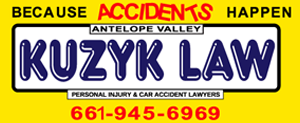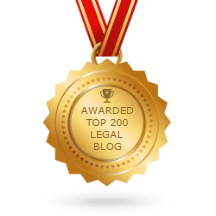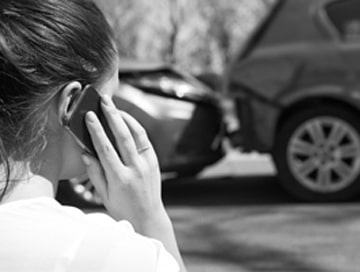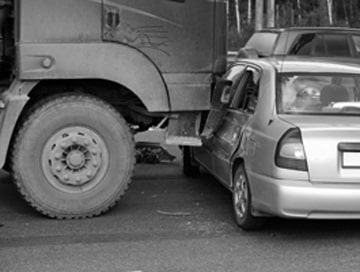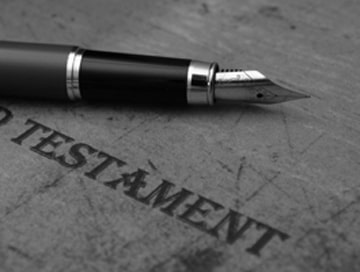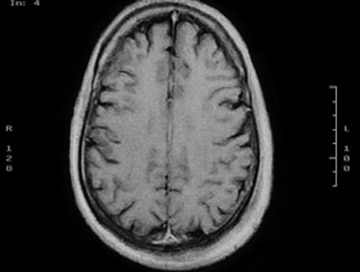
Getting into traffic accidents is sometimes unavoidable, and it may lead to various unwanted consequences such as physical injuries or damage to the vehicle. But there is one more very common, although much less talked-about concern that may result — emotional distress. Naturally, while everyone’s first hope is that no physical injuries occurred, the issue of emotional anguish is often overlooked and not considered with the same weight as physical injuries.
What Is Emotional Distress?
Emotional distress is a common response to accidents of all kinds, even those seemingly minor ones. It may have a subtle or significant impact on our lives and is much harder to identify than physical injuries. In more severe roadway accidents, which may result in physical injuries, emotional distress can be a much more common occurrence, and it is similarly easier to pursue with legal means.
However, many may wonder what happens in a case where a car accident leaves you with no physical injuries at all, but still with the troubling emotional toll that can play out in many forms.
Emotional Distress WITH Physical Injury
As you may already know, seeking financial compensation for damages resulting in you being physically injured is a common and relatively easy case to pursue in California. Such cases may include claims of both economic and non-economic damages. This means that besides the financial losses stemming from the physical injury and its related fees, you are eligible for monetary compensation for any emotional distress endured as a result.
In some cases, there may also be punitive damages, which are more in the form of a punishment for the defendant and result in money awarded to the plaintiff.
Therefore, suing for emotional distress when a physical injury is present is generally an acceptable course of action in California.
Emotional Distress WITHOUT Physical Injury
What happens in a situation where no physical injuries were endured, but the accident has left the victim with emotional and mental anguish and distress? As you may have guessed, there is a bit of a gray area in this case. As opposed to physical personal injury claims, which are relatively easy to prove and therefore claim compensation for, simply claiming to be suffering mentally or emotionally in the absence of any physical harm may not always be enough to take legal action.
There are, however, many factors in existence that make it possible under California law to sue for emotional distress. The short answer to the question, therefore, is: Yes, in the state of California, emotional distress and anguish IS a recognizable cause for compensation. This means that plaintiffs can sue based on those grounds even without physical injury.
Before we dive into what these factors are and what conditions need to be met, let’s first explore what emotional distress means and the different kinds of legally recognized emotional distress.
Symptoms of Emotional Distress
Identifying emotional distress may not always be easy. It can manifest in myriad forms and have various effects on our life. Experiencing emotional distress can cause any (or all) of the following symptoms:
- Feeling fatigued or “drained”
- Anxiety; being on edge, impatient, and short-tempered
- Withdrawal from family, friends, or society
- Short attention span and lack of focus
- Irregular sleep patterns and sleep disturbances
- Loss of appetite or weight fluctuations
- Low sex drive
- Anguish, nervousness, grief
- Fear or phobias resulting from driving or being near traffic
In extreme cases, emotional distress caused by a car accident can lead to depression, panic attacks, mental trauma, and PTSD. It can even cause unexplainable physical symptoms such as ulcers, nausea, chronic headaches, stomach pains, backaches, indigestion, and skin outbreaks (all ranging in severity).
More indirect consequences may result in drug addiction or abuse in response to the symptoms listed above.
One of the major problems with emotional distress is that besides being hard to directly link to an accident, the symptoms can begin to manifest days or even weeks after the event and can be long-lasting.
If you are not sure whether you are experiencing emotional distress, check your symptoms and consult with a medical professional.
Types of Legally Recognized Emotional Distress
There are two types of cases:
- Intentional Infliction of Emotional Distress (IIED)
Intentional infliction will require strong evidence that outrageous actions were purposefully directed at the plaintiff or that the defendant knowingly caused harm, disregarding existing emotional distress.
“Outrageous” here is defined as an act or conduct that a reasonable person would regard as being outside of socially acceptable decency boundaries. This may include the abuse of an authoritative position, the exploitation of particularly vulnerable individuals, or the knowledge that the behavior in question may result in harm. DUI cases causing death or injury can often be regarded as IIEDs as well.
- Negligent Infliction of Emotional Distress (NIED)
As the name suggests, negligence refers to simple (unintentional) reckless behavior that has resulted in the plaintiff’s mental anguish. Here, malicious or evil purpose does not have to have been present, and no proof is required for intent. This fact may make NIED cases somewhat easier to pursue. However, there are some complexities to consider.
For both cases, plaintiffs must prove the resulting consequences. If successful, settlement for such cases can amount to hundreds of thousands or even millions of dollars in compensation.
As most traffic accidents will likely be unintentional, they would fall under the NIED category. California law recognizes two instances where monetary damages can be recovered in NIED claims:
1. Direct Victim Claim
This is applicable when the plaintiff experiences direct negligent conduct. This claim is based on the violation or breach of a duty of care that the defendant owes directly to the plaintiff.
2. Bystander Claim
This is applicable when the plaintiff is a bystander and is witness to negligent conduct or injury directed at a third party or family member. For proof, a plaintiff needs to show that:
- The third-party victim is closely related;
- The defendant negligently caused harm to them;
- The plaintiff was present at the scene of the accident; and
- The plaintiff suffered serious distress as a result.
In both claims, a judge may decide whether the allegations constitute a duty owed to the plaintiff as a direct victim.
Factors to Consider
If you are adamant about pursuing an emotional distress lawsuit, you will need to consider the following factors:
- Severity of Accident
Compelling emotional distress cases do not often include minor accidents such as fender-benders or scrapes. The likelihood of winning your case can largely depend on the seriousness of the accident, including the interactions that followed.
- Intensity of Symptoms
Being shaken up following even a minor accident is a normal response, but it is not enough to constitute emotional anguish. For your suffering to hold any value in court, the symptoms would need to be severe enough to disrupt your normal way of life following the event.
- Time and Duration
Time is of the essence. And, being quick to act by immediately diagnosing the consequences of your distress and receiving the proper treatment can not only ensure a timely recovery, but it can also significantly impact the likelihood that your legal claims are warranted. Insurance companies are likely to dismiss claims of emotional distress if the plaintiff waits too long after an accident to seek medical attention.
As mentioned, it is not uncommon for symptoms to arise at much later dates following the event, and their duration may also greatly vary. It is essential to be aware and track your condition as soon as you notice any unusual changes.
- Damages
These include any economic or financial damages resulting directly from the accident, including bills for medical or psychological treatments, hospital stays, prescribed medications, medical mileage, lost wages/salary, and diminished property value.
- Proof/Testimonials
It is crucial to secure any documented proof that can add substance to your claims. This can include medical or psychiatric bills, records, prognoses, and expert testimonies.
Medical professionals can track levels of trauma and anguish and administer relevant tests. These tests can certainly add legitimacy to your case. Your car accident lawyer should work with medical experts to identify and prove any further non-economic losses and determine the financial compensation they may warrant or assign a value.
Here’s how to maximize your chance of winning the lawsuit:
- Keep a list of prescription medicines that health professionals have given you as a result of the accident.
- Keep any other records from health professionals such as mental health narratives or general observations of your emotional state.
- Written or typed messages in the form of mail, email, or instant messages may be of value. If you have received any message — from family, friends, employers, or acquaintances — which clearly states that they have witnessed a negative change in your demeanor following the accident, be sure to keep them as they can be used as evidence.
- Proper Medical Treatment
In severe cases of distress, which may lead to conditions such as PTSD, there may be physical changes to the brain. A PET scan is recommended to identify whether any emotional changes may be a result of other injuries or whether they can be isolated and treated with psychiatric care.
What Are the Limitations?
There are a couple of limitations in place whereby a plaintiff is not warranted compensation for such lawsuits.
- If the person making the claim was under the influence of drugs or alcohol during the accident
- If the person making the claim did not have valid auto insurance for the vehicle involved in the accident
As mentioned, time is also a factor. Specifically for these types of personal injury claims, the statute of limitations is valid for two years following the incident, after which no legal claim can be filed and no compensation can be given.
Further Steps and Suggestions
If you are still undecided about what steps to take with your pursuit of an emotional distress settlement, you can begin by considering the advice below.
- Be sure not to agree to sign any settlements or releases from your own or the second party’s insurance company before talking with an expert lawyer. Rushing to sign waivers can lead to undesirable and irreversible results.
- Furthermore, we strongly encourage our clients to learn more about minimizing risks while driving and following guidelines for safe driving on the road. This ensures you remain safe behind the wheel and avoid further physical or emotional harm.
- Lastly, if you are sure that the legal road is one you want to take, avoid going on this complicated journey alone!
In conclusion, filing a lawsuit and receiving compensation for emotional complications resulting from car accidents is possible. Being able to pursue it and win the case may largely depend on your ability to find a competent legal team and lawyer that can direct you through the process and deliver desirable results.
At Kuzyk Personal Injury & Car Accidents Lawyers, our expert team of attorneys has helped hundreds of clients seek justice for their misfortunes caused by the negligence of reckless drivers and unfortunate roadway accidents in the state of California. To maximize the probability of your desired outcome, we encourage you to get in touch with a team of attorneys that has a record of dealing with such issues.
Take Action for Your Distress
Are you or your loved ones experiencing emotional stress due to a recent vehicular accident? Do you have questions and concerns about your legal options? Kuzyk Personal Injury & Car Accidents Lawyers has years of experience dealing with exactly such cases and ensuring that our clients are compensated accordingly and treated justly.Contact us today for a free consultation or book an appointment with our expert team of attorneys to learn about your options.
